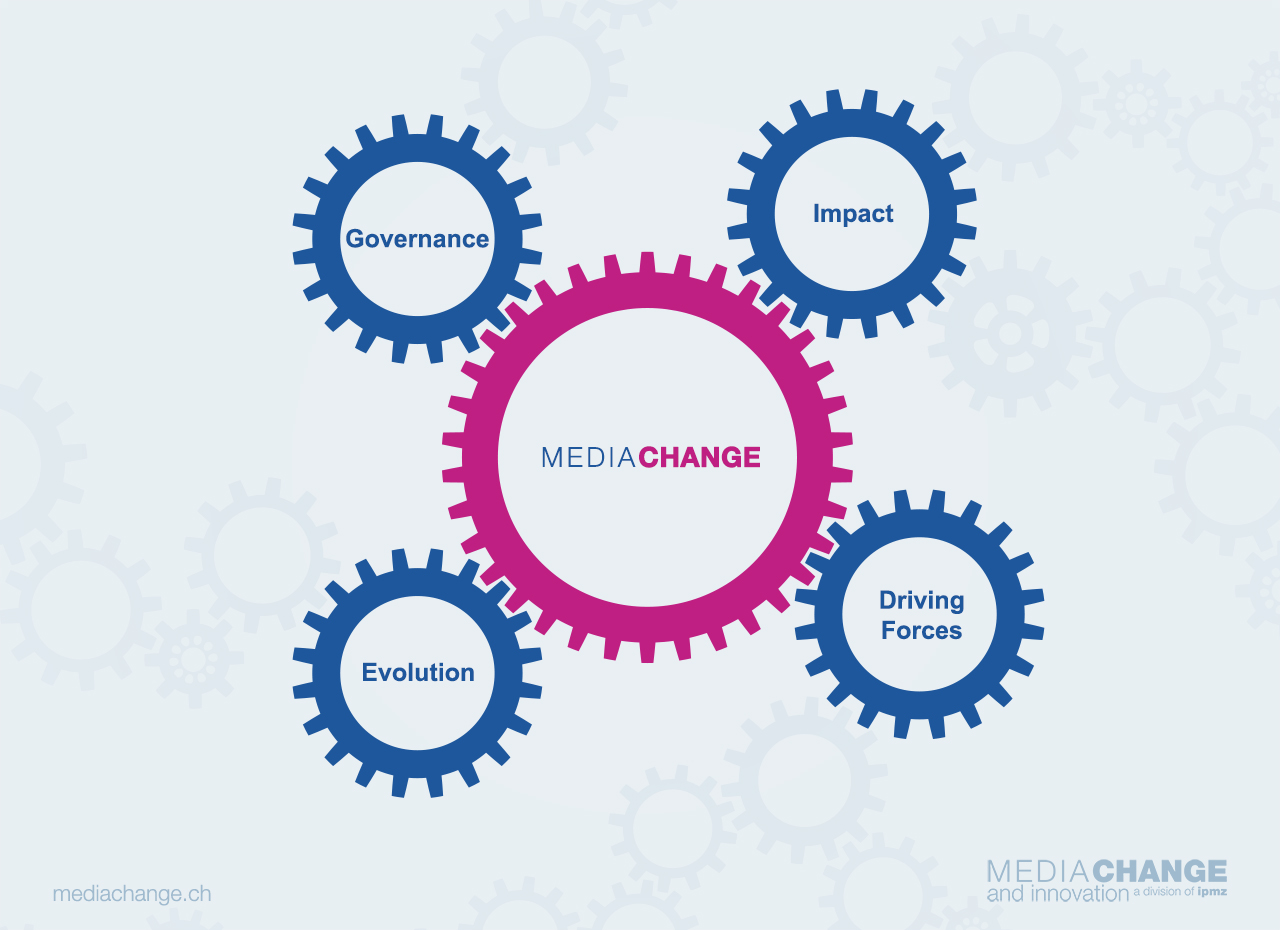Research

The Media Change & Innovation Division analyzes driving forces, the evolution, the impact and the governance of media change. It investigates technical, social, economic and political innovations and focuses on social science aspects of mediatisation/information society, emphasizing in particular the phenomenon of convergence and the Internet.
Please find all current and past projects here: Research projects
Exemplary research questions include:
Driving forces:
- How can media change be theoretically grasped?
- How do innovations occur?
- How do technical, economic, political and social change interrelate?
Evolution:
- What diffusion patterns of the Internet and New Media are discernable?
- How can the diffusion patterns be explained?
Impact:
- What consequences arise for the economics and politics of communications in general, and for communications research in particular?
- What business models (value propositions, value chains, revenues) characterize the Internet and New Media? How do market structures change?
- Are traditional media substituted by new media?
- What are the implications for public service broadcasting?
- What are the consequences for communications theory?
- What are the social consequences of media change in general and on data and consumer protection and the digital divide in particular?
- What are the consequences for media concentration control?
Governance/Controllability:
- To what extent is media change controllable and shapeable?
- What patterns of governance emerge for the convergent communications sector and for the Internet in particular?
- Does media convergence entail the end of sector-specific regulation and what is the standing of competition law?
- How does the role of the state change in the convergent communications sector, how important are self- and co-regulation?